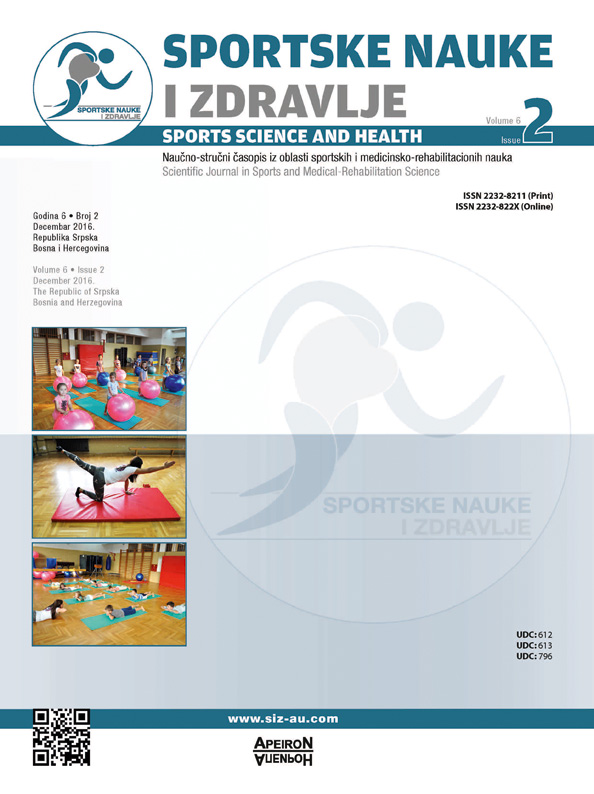Medical Exemption From Physical Education in Secondary School Students // Oslobođanje učenika srednjih škola od nastave fizičkog vaspitanja
DOI:
https://doi.org/10.7251/SSH1602114MAbstract
Physical education of today faces many challenges, one of them being students’ medical exemption. Previous studies suggest that reasons for exemption from physical education might not be only medical, but related to students’ lack of motivation, miscommunication with PE teacher etc. The aim of the study was to examine the extent of the problem of medical exemption from physical education in secondary schools. The sample included 5226 students, 2068 males and 3158 females, from secondary schools in Novi Sad (Serbia). Data were analyzed by descriptive statistics and chi-square test. In addition a set of conversational interviews with PE teachers was conducted and analyzed. Total percentage of medically exempted students was 3.73%. A significant relation between gender and medical exemption was identified, while age and PE teachers’ gender were not significantly related to medical exemption. The results indicate that female students are more likely to be medically exempted from physical education in secondary school than their male counterparts. Qualitative data revealed that in addition to medical reasons, there might be others, as well: less interest in physical activity, instructional content that does not meet students’ needs, self-consciousness about physical appearance, girls’ perceptions of physical activity and sports as non-feminine, etc. PE teachers should plan for diverse and positive learning experiences for all student, while motivating them to develop an active lifestyle.Downloads
Published
2017-01-03
Issue
Section
Чланци
